Changing Masculine to Singular Feminine
An adjective modifies a noun or a pronoun. All French adjectives agree in number (singular or plural) and gender (masculine or feminine) with the nouns they describe. In fact, in French, all words in a sentence must agree with each other: If, for example, the noun or pronoun is singular, its verb and any adjectives describing it must also be singular. If the noun is feminine, the adjective describing it must also be feminine.
Unlike English, most French adjectives are placed after the nouns they modify. A few adjectives, however, precede the noun. In addition, when you use more than one adjective to describe a noun, you must follow placement rules.
Most adjectives add e to the masculine singular form to get the feminine singular. Be careful when you see masculine adjectives ending in ‐e, ‐eux, ‐f, and ‐ er, because for those, you do not simply add e. (Note that adding this e to a previously silent consonant causes that consonant to be pronounced. No pronunication changes, however, occur when adding e to a vowel.) See Table 1 for a list of common adjectives in their masculine or feminine form.
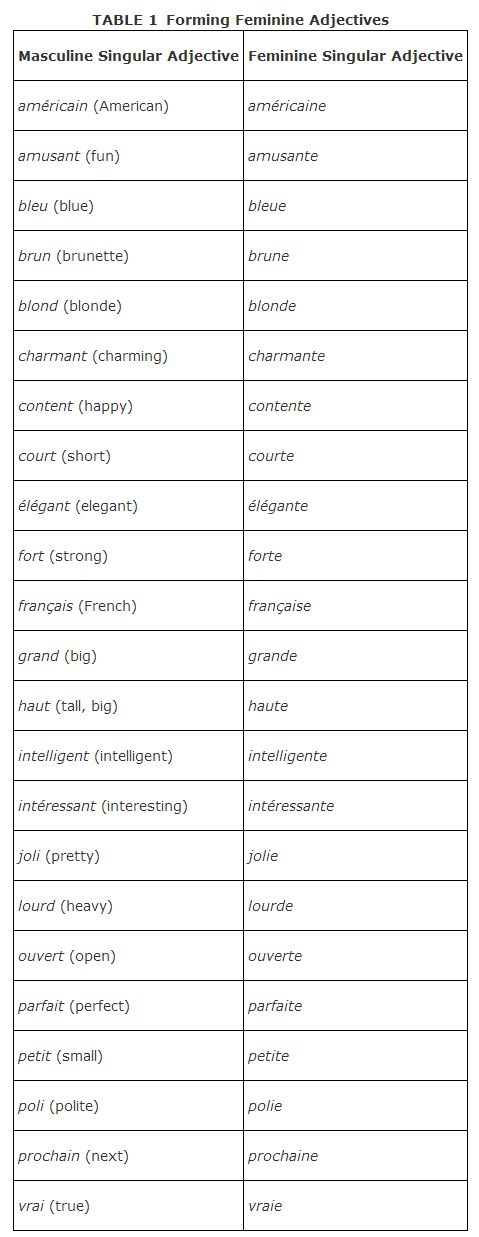
Masculine adjectives that end in a silent e
Singular adjectives that end in a silent e do not change in the feminine. Masculine and feminine forms are spelled and pronounced in the same manner, as follows:
- aimable (kind, pleasant)
- célébre (famous)
- comique (comical)
- confortable (comfortable)
- drôle (funny)
- facile (easy)
- faible (weak)
- formidable (great)
- honnête (honest)
- magnifique (magnificent)
- maigre (thin)
- malade (sick)
- mince (thin)
- moderne (modern)
- pauvre (poor)
- proper (clean)
- sale (dirty)
- sincére (sincere)
- splendide (splendid)
- sympathique (nice)
- triste (sad)
- vide (empty)
Masculine adjectives that end in é
Form the singular feminine of singular masculine adjectives ending in é by adding ‐ e, as shown in Table 2.
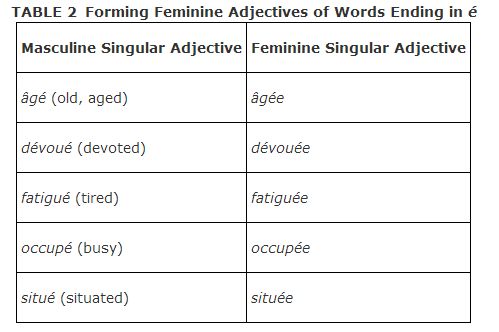
Masculine adjectives that end in eux
Masculine singular adjectives ending in eux form the feminine by changing ‐ x to ‐ se, as shown in Table 3.
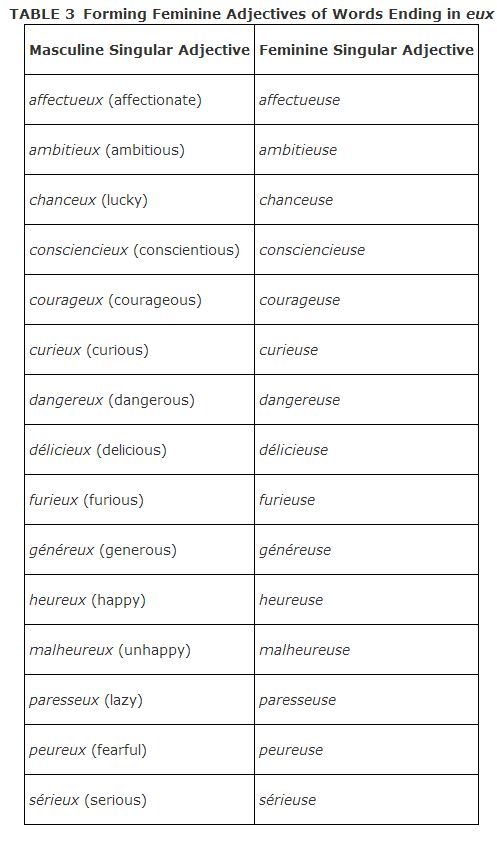
Masculine adjectives that end in f
Form the feminine singular of masculine singular adjectives ending in f by changing -f to - ve. See Table 4 .
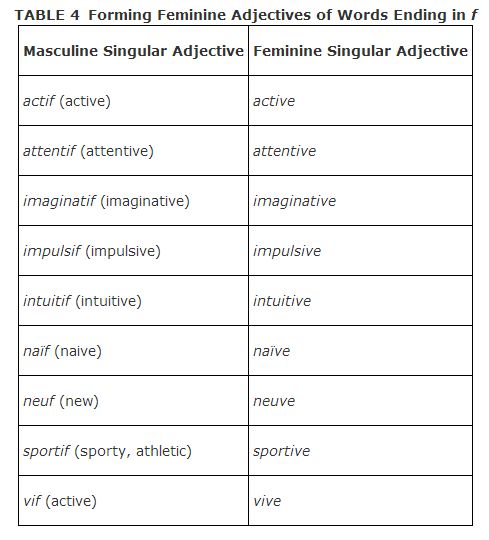
Masculine adjectives that end in er
Masculine singular adjectives ending in ‐ er form the feminine by changing ‐ er to ‐ ére, as shown in Table 5.
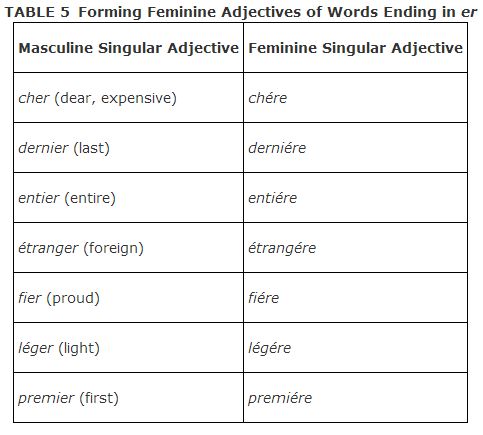
Masculine adjectives that end in consonants
Some masculine singular adjectives form the feminine by doubling the final consonant before the ‐ e ending. See Table 6.
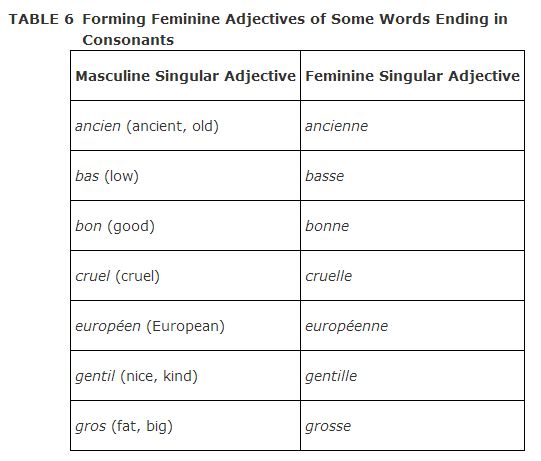
Masculine irregular adjectives
The irregular adjectives shown in Table 7 have no rules and must be memorized.
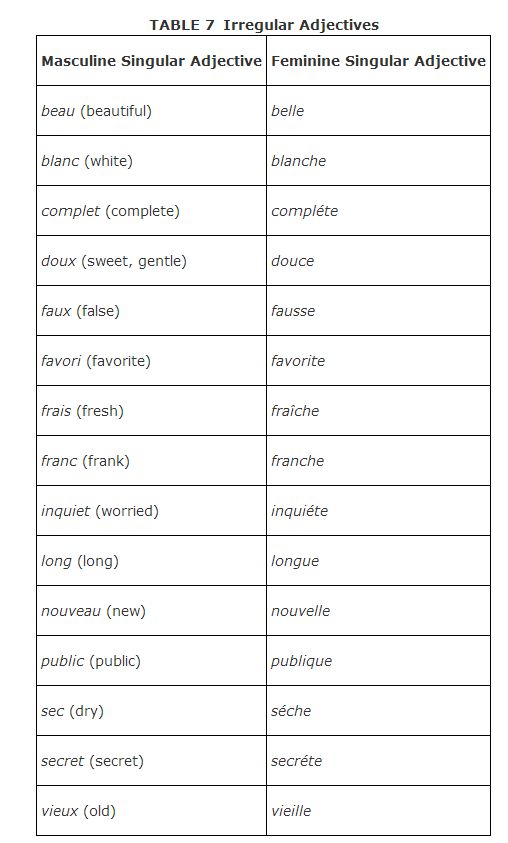
The French use special forms of beau (bel), nouveau (nouvel), and vieux (vieil) before masculine nouns beginning with a vowel or vowel sound. If, however, the adjective comes after the noun, the regular masculine form is used:
- un bel arbre (a beautiful tree); L'arbre est beau. (The tree is beautiful.)
- un nouvel appartement (a new apartment); L'appartement est nouveau. (The apartment is new.)
- un vieil avion (an old airplane); L'avion est vieux. (The airplane is old.)